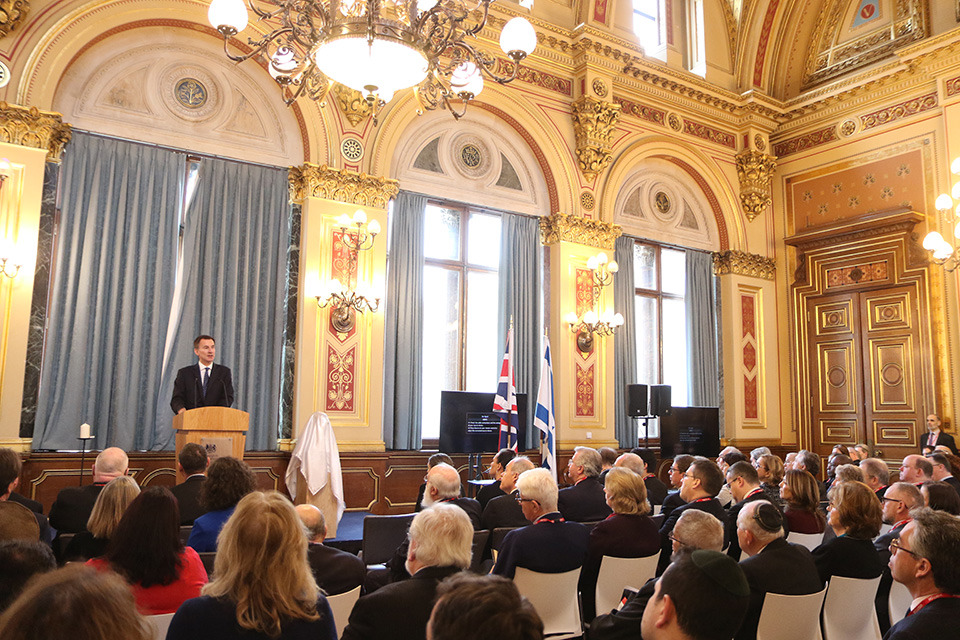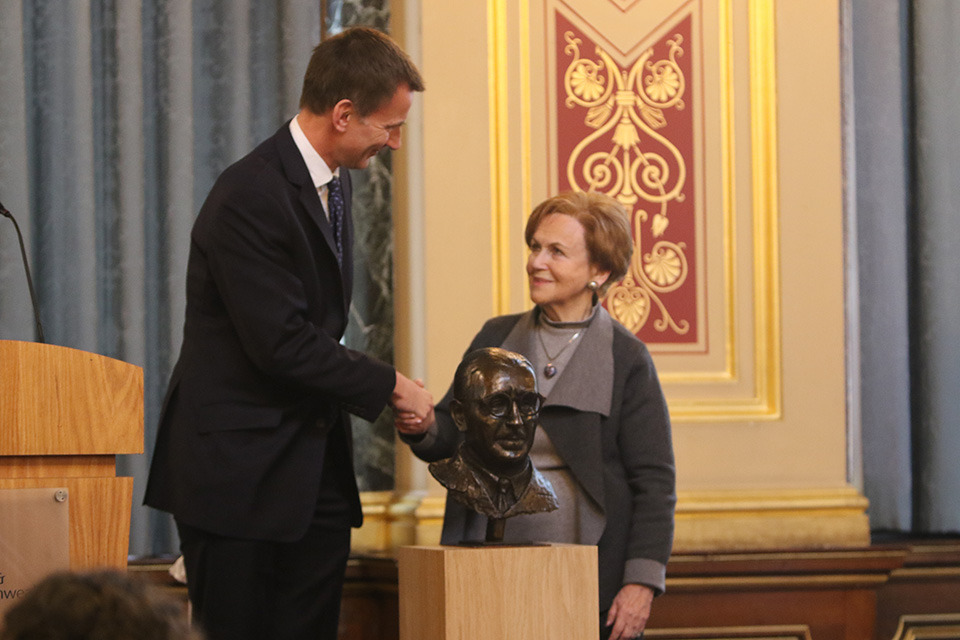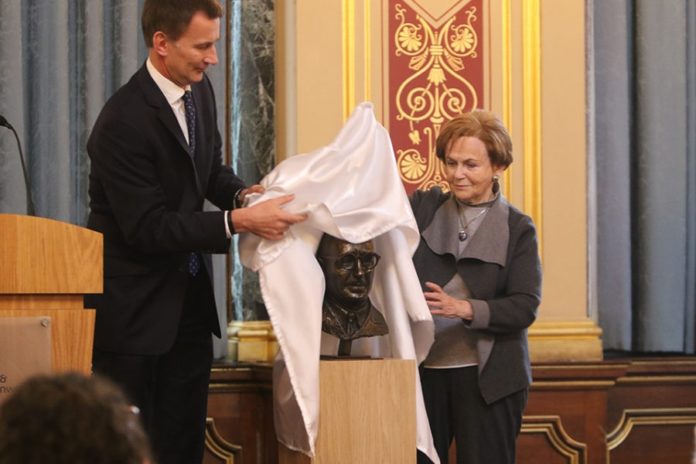Foreign Secretary Jeremy Hunt has this week unveiled a bust of Frank Foley, the Highbridge-born wartime diplomat who saved thousands of Jewish lives.
In a ceremony on Wednesday, Jeremy Hunt made a speech and unveiled a bust of Frank Foley alongside a Holocaust survivor Mala Tribich at a Holocaust Memorial Day Commemoration event at the Foreign & Commonwealth Office in London.
Mr Foley, who was born in Highbridge’s Walrow, was a British Secret Intelligence Service (MI6) officer at the British embassy in Berlin who ‘bent the rules’ by working as a passport officer and helped thousands of Jewish families escape from Nazi Germany after Kristallnacht and before the outbreak of the Second World War.
Jeremy Hunt said: “In 2006, I had the life-changing experience of visiting Auschwitz myself with Holocaust Education Trust. The trip was led by the inspirational Rabbi Barry Marcus, who many of you will know.”
“We visited a museum to commemorate the Poles who had sheltered Jews. The penalty, of course, was death, not just for the individual, but for every member of that individual’s family.”

“More than 5,000 Poles took that risk. Many others across Europe looked away. What would each of us do if history repeated itself?,” he added.
Since then, Mr Hunt said a “question that troubled me as I tried to take all this in is, would I have looked away? Would I have done the right thing?”
On Wednesday, Mr Hunt said it was “an incredible privilege to honour some of those who did not look away, and who worked for the Foreign Office, or our sister organisation, the Secret Intelligence Service.”
“One of them was Captain Frank Foley… Ostensibly, he was in charge of passport control; in fact, he was an SIS officer – something that the Government has taken the exceptional step of publicly confirming.”

He noted that Foley applied the “rules [for handing out passports] with what might be called sympathetic flexibility.”
“We should reflect that it was not the state as a whole, but remarkable individuals like Frank Foley who did the right thing, made the correct moral choice, often in defiance of the rules. So here I ask: what would each of us have done if we had been in his place?”
Hunt noted that one of the Jews Foley saved “happens to be the father-in-law of my cabinet colleague, James Brokenshire. Others include the grandparents of an SIS officer who is serving today.”
“But even as we take pride in the memory of Frank Foley, we should never lose sight of the hard truth that when the crucial moment came and the moral test was posed, there were too few people like him.”
Frank Foley died in 1958 having observed the code of his profession and kept silent about his service. Four decades passed before Michael Smith wrote his biography and he began to receive the posthumous recognition. A Highbridge Frank Foley statue was also unveiled i 2005.







